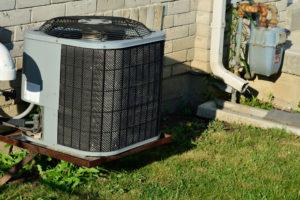AC Replacement in Dallas
Air conditioners Replacement can last for many years. If your air conditioner is reaching the end of its functional lifetime, or you’re simply interested in upgrading your HVAC system for greater comfort or energy efficiency, A/C replacement is a straightforward process. Understanding how to evaluate your options and select an air conditioner that is right for your needs will ensure you enjoy your purchase for many years to come.
Air conditioning replacement is, at times, a necessity in certain areas of the country. Much like a furnace on the fritz in colder climates, air conditioning repair becomes serious business during hot southern summers.
Air Conditioner: Repair or Replace?
So much has changed in the world of air conditioning in recent years that if your system has almost any significant breakdown — or if it’s just not keeping you as cool as it used to — it may be worth replacing it instead of repairing it.
As of 2010, for example, manufacturers must use a new kind of refrigerant that’s not an ozone-depleting chlorofluorocarbon. And a new system can use less than half the electricity of your old one while doing a far better job of keeping you cool and comfortable.
If your air conditioner is more than eight years old, repair is probably not worth the expense, unless it’s a simple problem like debris clogging the condenser unit or a worn fan belt. Still, to best weigh your repair-or-replace decision, ask your contractor to assess not just the condition of your existing equipment, but also the ducts that deliver the cool air and the overall quality of the insulation in your house. Improving those elements might increase the effectiveness of the system as much or more than installing new machinery.
Assess the Efficiency of Your Current System
Even if your central air conditioner is just eight to 10 years old, it could suck up to twice the electricity that even a low-end new one would use. That’s because it operates at or below 10 SEER, or Seasonal Energy Efficiency Ratio, which is the amount of energy needed to provide a specific cooling output. Until 2006, 10 SEER was standard, but these days, the minimum allowed by federal law is 13 SEER. That translates to 30% less electrical consumption and 30% lower cooling bills than equipment installed just a few years ago.
For a 1,800 square foot house, a new 13 SEER unit will cost $3,000 to $4,000. You can double your energy savings by jumping up to 16 SEER, which will reduce cooling expenses by 60% over a 10 SEER unit. At $5,000 to $6,000, these super-efficient units are more expensive, but they qualify for a federal tax credit of up to $300 and possibly local incentives, too.
“Your installer can run the numbers for you to see whether it’s worth the additional cost,” says Ellis Guiles of TAG Mechanical in Syracuse, New York. “If you’re south of the Mason-Dixon line, certainly, you can make up those dollars pretty quickly.”
Inspect the Condition of the Ductwork
You could upgrade to the highest efficiency gear available and still not feel comfortably cool on hot days. That’s because the mechanicals is only part of the central air system. The average house’s ductwork leaks 10% to 30% of its air before it can reach your living space, according to Pacific Gas & Electric. Before deciding whether to repair or replace your condenser and blower units, your technician should run a duct leakage test, by sealing the vents and measuring how much air escapes the system.
If the ducts are inefficient, he can locate and seal the gaps, typically for $25 to $35 per event (per “run” in industry jargon), or replace the ductwork entirely with new, an insulated pipe for around $100 per run, according to Guiles. Your technician may recommend doing the duct improvements in conjunction with the replacement of the mechanicals or may recommend only one or the other job. Read more…
The Advantage Of AC Replacement
When it’s time to consider your options for replacing one or both systems, you may be tempted to install only the system giving you the most trouble at the time and wait to purchase the other system. However, replacing both systems — even if one is still working — can save you energy and money over the long term. Call (214) 238-8353 us for your home service and repair needs.
For more related articles and info visit https://www.berkeys.com/category/air-conditioning-articles/
